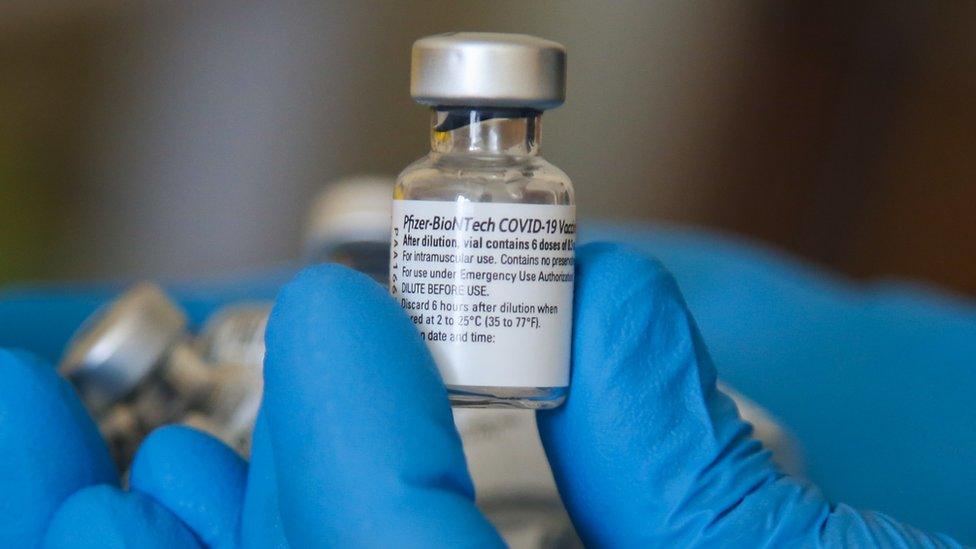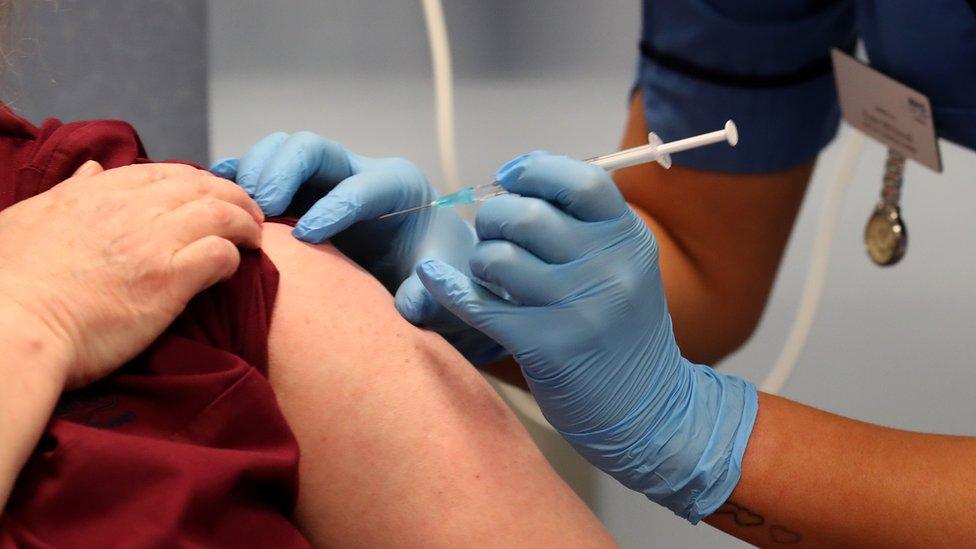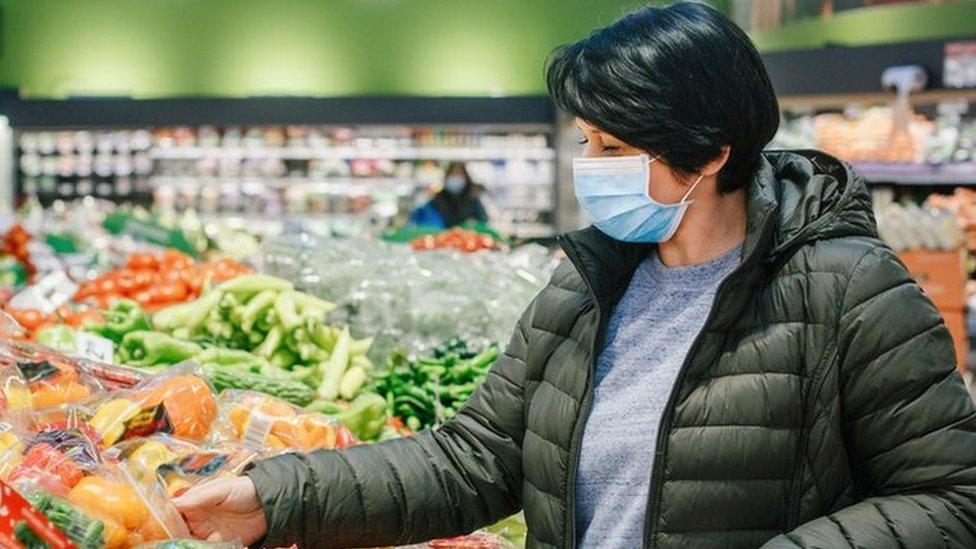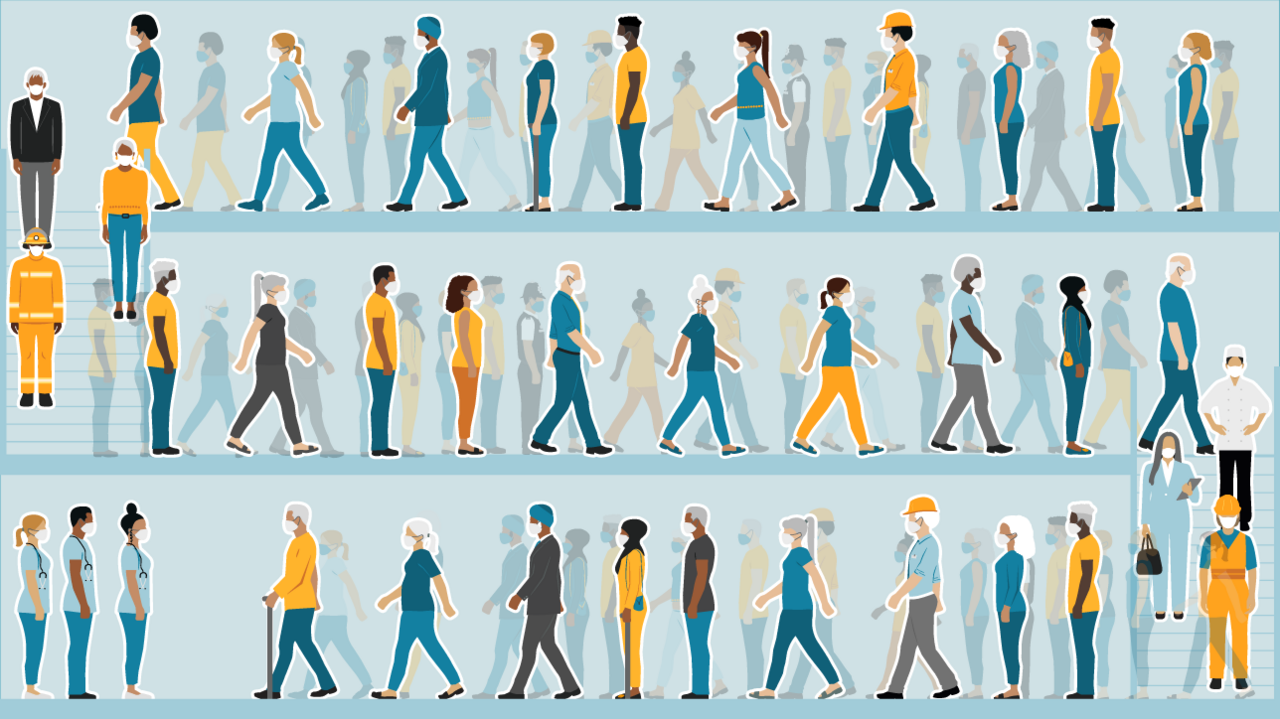Chilterns: Council says get vaccinated in area with high Covid rate
- Published

Buckinghamshire Council has asked people to get vaccinated and if eligible their booster jab
People in an area that has the eighth-highest Covid rate in England have been further encouraged to get vaccinated.
Buckinghamshire Council said the rate in the Chiltern district was 721 cases per 100,000 people in the week to 28 October.
That was down from 964 cases in the week to 21 October.
The council said rates were "higher among our unvaccinated population" and it was "monitoring this changing situation carefully".
It also encouraged people to take "sensible precautions this winter" to stop the spread and reduce hospital admissions.

Buckinghamshire Council said case rates are higher from people who are not vaccinated
"As well as getting the vaccine as soon as you can, this includes testing regularly and self-isolating if you have a positive result and being considerate when you mix with others - washing your hands, open windows and meet outdoors when possible, wear a face covering when appropriate and keeping your distance from others," a spokesman said.
"Case rates across Buckinghamshire continue to be higher amongst our unvaccinated population, particularly school-aged children, and we are monitoring this changing situation carefully as the local vaccination programme progresses."
The council advised anyone eligible for their booster jab to get one.
The vaccination programme for 12 to15-year-olds was "proceeding well", it added.
In neighbouring Hertfordshire, St Albans had the seventh-highest rate among English districts with a rise in the rate of Covid from 686 cases per 100,000 people in the week to 21 October to 735 in the week to 28 October.

Find BBC News: East of England on Facebook, external, Instagram, external and Twitter, external. If you have a story suggestion email eastofenglandnews@bbc.co.uk, external
- Published1 November 2021

- Published2 April

- Published4 March 2022
